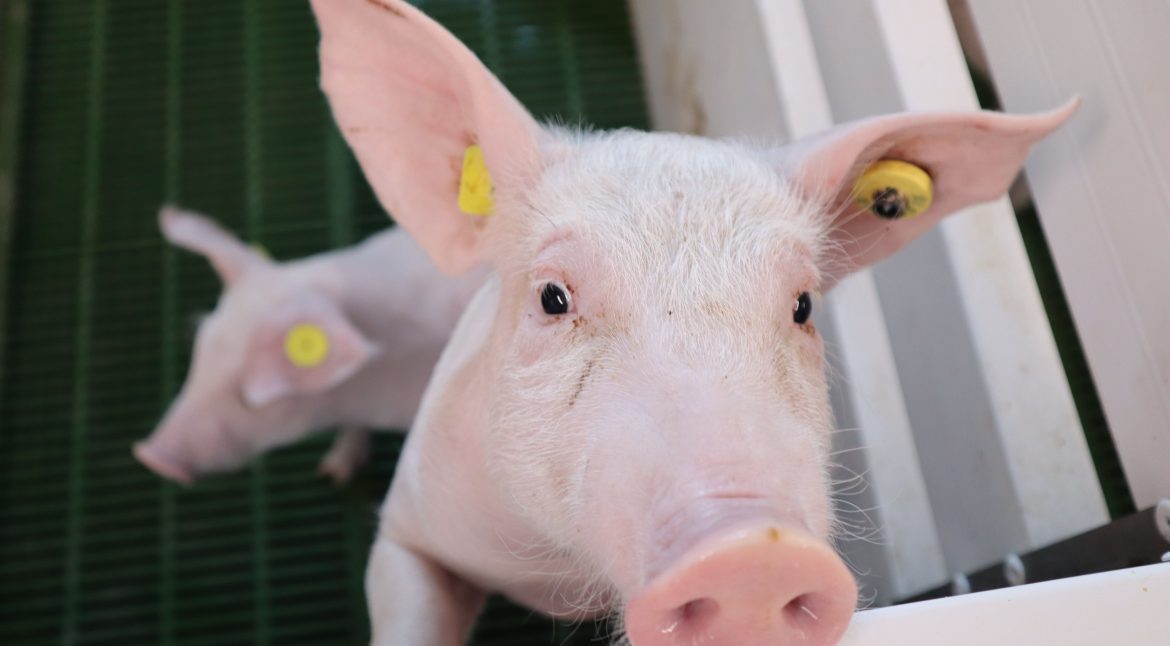Weaning stress causes gut-barrier dysfunction partly by triggering the release of corticotropin releasing factor (CRF) and thereby inducing degranulation of intestinal mast cells, which in turn results in intestinal dysfunction that compromises piglet’s welfare. The aim of this study was to evaluate how mixing (social stress) influences the physiological condition of weaned piglets by inducing intestinal mast cell degranulation. To this end, 48 21-day-old weaned piglets (Danbred x Pietrain, 6 kg body weight) were divided into a negative control (CT) and a socially stressed (SS) group. Social stress consisted of mixing the piglets for three consecutive days (day 22-24 after weaning) with unfamiliar piglets. Piglets were housed in groups of four (six pens/treatment) and fed ad libitum. Performance parameters were measured weekly. To evaluate the physiological condition of weaned piglets, blood and intestinal samples (jejunum and ileum) were collected from 12 piglets per treatment (two pigs/pen) the day after mixing (day 25 after weaning). Haematological and histological measurements, including the number of degranulated mast cells, were taken. Performance was analysed using a mixed-effects model (SAS, v.9.4). Haematological and histological parameters were analysed using one-way ANOVA (GraphPad Prism). Compared to the CT group, the SS group showed a trend for an increase in the number of degranulated mast cells in the jejunum (P < 0.10), an increase that was significant in the ileum (P < 0.05). Several haematological parameters differed significantly between groups (P < 0.05). According to the parameters measured in the present study, social stress may also induce mast cell degranulation in the intestine, which may influence the physiological status of the anima.

Autores: Gemma Tedo, Pol Llonch, Jose J. Pastor
Libro/Revista: Journées de la Recherche Porcine, 543,305-306
